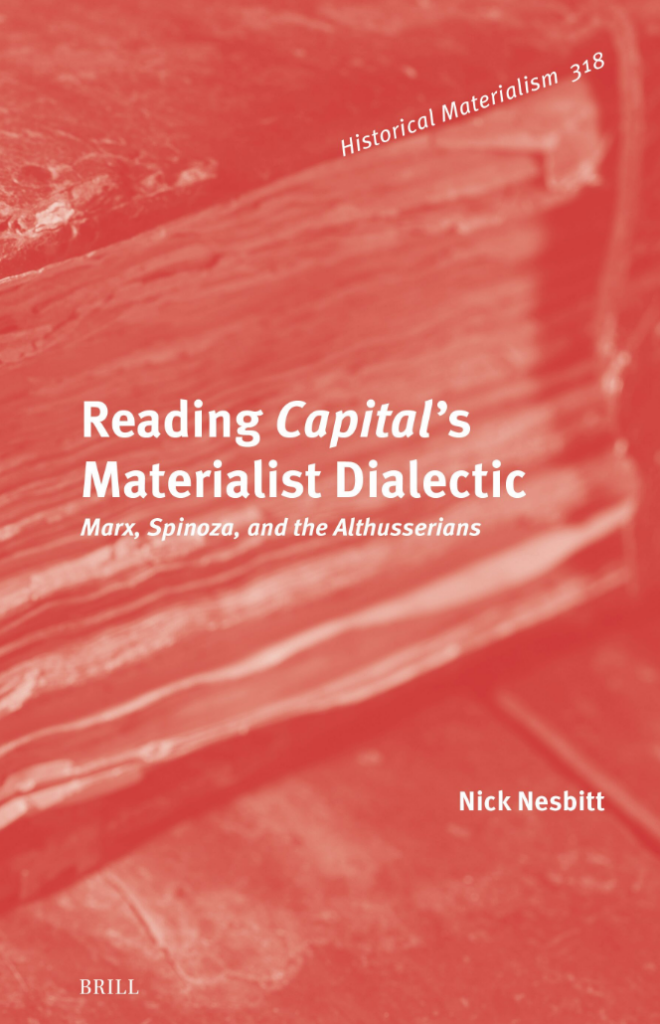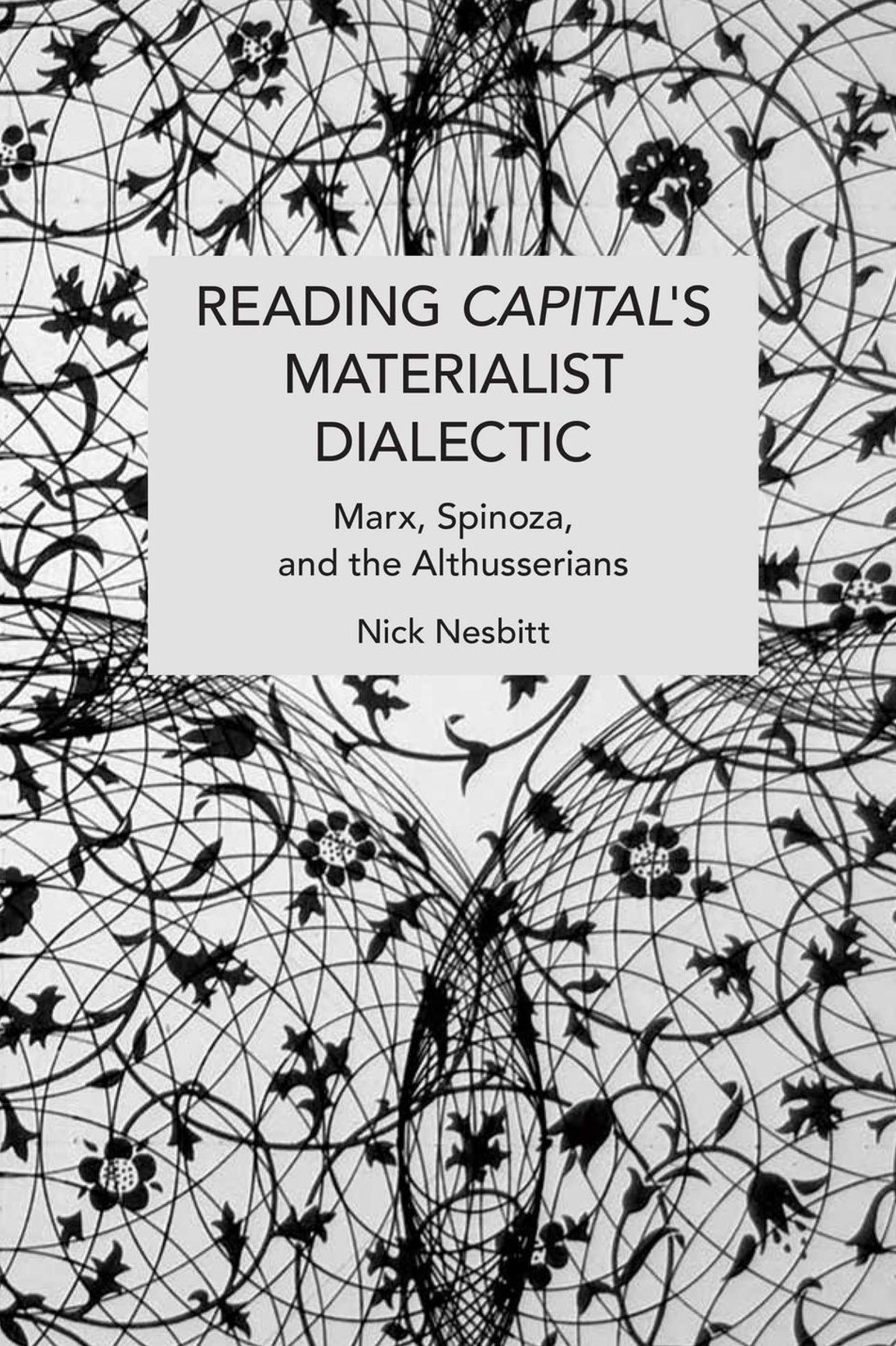Nick Nesbitt
Author: Nick Nesbitt
While the explicit Althusserian engagement with Marx’s Capital remained largely limited to Reading Capital, after 1968, Nick Nesbitt argues, this theoretical intervention remained insistent, adopting the form of a general theory of materialist dialectic. The book thus analyzes the Althusserianist theory of a materialist dialectic across diverse sites including Althusser’s unpublished archive, Macherey’s exposition of Spinoza’s Ethics, and Badiou’s Logics of Worlds, while simultaneously bringing this fully-developed theory of materialist dialectic to bear anew on the reading of Capital itself, to show that Spinoza’s influence on Marx is far greater–and that of Hegel increasingly diminishing–than has been previously thought.
Biographical Note
Nick Nesbitt is Professor of French at Princeton University and Senior Researcher at the Department for the Study of Modern Czech Philosophy, Institute of Philosophy, CAS, Prague. He is the author most recently of The Price of Slavery: Capitalism and Revolution in the Caribbean (Virginia 2022), and editor of The Concept in Crisis: Reading Capital Today (Duke 2017).
Readership
The book will be of interest to readers of post-Althusserian theory, the development and logic of Marx’s critique of the capitalist social form, and Marx’s relation to Spinoza and Hegel.
Table of Contents
Preface: The Limits of Capital
Acknowledgements
Abbreviations
1 Introduction: Reading Capital Beyond Its Limits
1 The Limits of Reading Capital
2 An Act of Theoretical Repression
3 For Marx in Its Limits
4 Reading Capital’s Process of Exposition
5 Hallucinatory Empiricism
6 Reading Capital’s Apodictic Structure
7 The Topography of the Attributes
8 The Theoretical Danger of Monism
9 Against Monism, the Return of Substance
10 The Theoretical Basis of Theoreticism
2 What Is Materialist Analysis? Pierre Macherey’s Spinozist Epistemology
1 Reading Capital’s Materialist Dialectic
2 A Theoretical Prolegomenon to the Materialist Analysis of Texts
3 Textual Production in a Materialist Mode
4 On the Inadequacy of the Structuralist Combinatory
5 Toward a Materialist Analysis of Form
6 Against Materialism, en matérialiste
7 Reading Capital as a Theory of Literary Production
8 Materialism in a Spinozist Way
9 On Telling Stories
10 The Persistent Problem of the Attributes
11 Reading Capital in a Materialist Way
3 The Positive Logics of Capital: On Spinoza and the Elimination of the Negative Dialectic of Totality from Marx’s Revisions to Capital, 1857–1875
1 The Discontinuity of the Attributes
2 Totality, Negation, Contradiction
3 Totality
4 The Imaginary Presuppositions of Systematic Dialectics
5 The Problem with Totality
6 The Systematic Dissonance of Capital
7 Negation and Contradiction
8 Constituting the Commodity
9 From Dialectical Contradiction to Additive Synthesis
10 Toward an Additive Demonstration, Without Contradiction
11 When Does Socially Necessary Labour Exist?
12 The Raw Materials of Marx’s Additive Synthetic Method
13 On Ignorance and Common Notions
14 Marx’s Spinozist Theory of Knowledge
4 Toward an Axiomatic Analysis of the Commodity in Badiou and Marx
1 1968: Logical Materialism
2 Bolzano and the Formalisation of Axiomatic Thought
3 Ontological Materialism in Its Limits
4 The Displacement of Capital
5 A Materialist Axiomatic
5 Capital, Logic of the World
1 Badiou’s Lacan, Badiou’s (Marx)
2 ‘Qu’en Est-Il De La Logique?’: Reading Logics of Worlds After Capital
3 Logics of (Capitalist) Worlds
4 Reading Capital as the Logic of a World
Conclusion: Theory and Practice Today
References
Index


